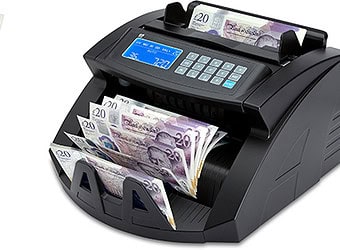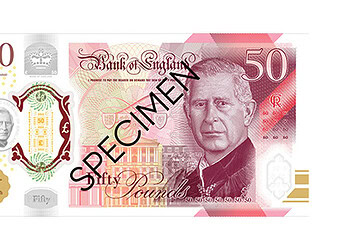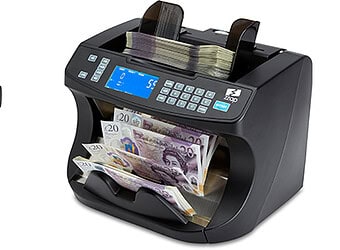You may be interested in selling on Amazon to increase sales or to start your own business. With over 100 million people making a purchase on Amazon every month you’ve come to the right place.
Amazon is one of the few online platforms in the world that can offer businesses a huge built-in customer base.
That doesn’t mean it’s easy to sell on Amazon. Far from it. Like all marketplaces, you need to take into account a number of factors in order to sell effectively.
However if you learn the right tactics, it’s possible to make a small fortune.
Why sell on Amazon?
If you’re not convinced selling on Amazon is right for you, then consider the points below.
- Access to millions of potential customers:
With over 244 million active users on Amazon, you already have one of the largest customer bases in the world driving traffic to your products. Your own standalone website simply can’t match that potential.
- Simplistic selling:
Amazon’s listing tools make it easier to sell than ever before. Building your own website or brick and mortar store simply can’t compete with Amazon’s simplistic and speedy design.
- Selling under a reputable and trusted brand:
A trusted brand is worth its weight in gold. Amazon is known and trusted by virtually every consumer out there. In fact the Amazon brand is worth $35.2 billion. This makes your products instantly more attractive to consumers.
- Seller & buyer protection:
Although Amazon’s rules and guidelines can work against sellers, they do limit fraudulent activity and can help to resolve disputes.
- Scaleability:
Unlike a brick and mortar business, Amazon already provides the customer base, the selling tools and the option to use their warehouses for your inventory. If you’re making good sales on Amazon, the potential for expansion is a real and exciting prospect.
• Low and proportionate costs:
On the face of it Amazon’s fees seem high. However when you consider the advantages above they appear justified. It would seem Amazon’s 2 million active sellers would also agree.
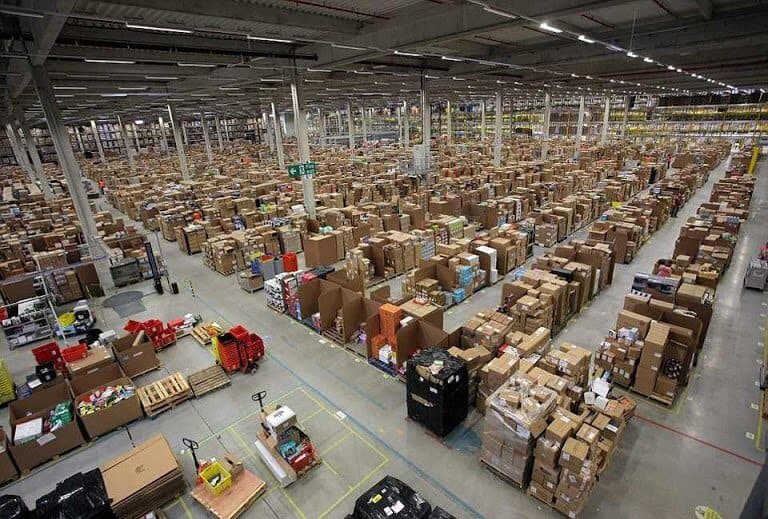
Learn from the best selling products
Knowing what your competitors sell and how often they are making a sale is key information. Don’t ever underestimate good research.
To get to know the best selling products, click on a product listed on Amazon (preferably a listing that is high up in the search results). Under “Product details” it will show the “Best Sellers Rank”. As shown below it can be displayed in different ways.


All you need to know is that the lower the ranking number (i.e. 279 in electronics), the more they are selling.
The rank is always relative to other products. So for instance a product may start selling well however if all the other competitor’s products also start selling well, their rank will stay the same. Therefore it cannot be an accurate way of calculating actual sales, rather a way to understand the best selling products.
On the other hand, eBay do allow you to see the actual sales, which I explain in my article: 7 key tactics to help you research and sell on eBay.
To gain a more accurate picture of the competitive landscape, it’s sometimes a good idea to track the seller rank over time to discover what the long-term best sellers are instead of the one-hit wonders.
Generally the best selling products will be at the top of the search and will often have more customer reviews. This is particularly relevant in niche markets, however in popular categories, don’t be fooled into thinking sellers on the 2nd or 3rd page aren’t selling much.
Popular categories such as toys have more products to show in the search and therefore products on later pages may also be selling significant quantities.
Once you know the best selling products in your market, make sure you analyse the product and the listing in detail.
- Does their product have a unique selling point?
- Is their product priced very competitively?
- Is the product description informative and appealing?
- Are their images first class?
If you can emulate their key selling points or make their weaknesses your strengths, you will have the real potential to become the top seller.
Work out your profit with Amazon fees
Although you may have a profit margin for your product, its essential that your margin incorporates the correct Amazon fees or you will get a nasty surprise.
Amazon’s official page on pricing can be found below. In summary if your business is selling more than 35 items a month you pay the following:
- £25 subscription fee
- A percentage commission of the sale depending on the product category (called a ‘referral fee’)
- A small ‘Variable closing fee’ for some product categories.
https://services.amazon.co.uk/services/sell-online/pricing.html
Unlike eBay, Amazon make it relatively clear what fees need to be paid. If you have listed a product you can check the specific fees by clicking on the ‘Inventory’ tab in seller central. It will then show you the fee per product in the “Fee Preview” column, as shown in the red box below.
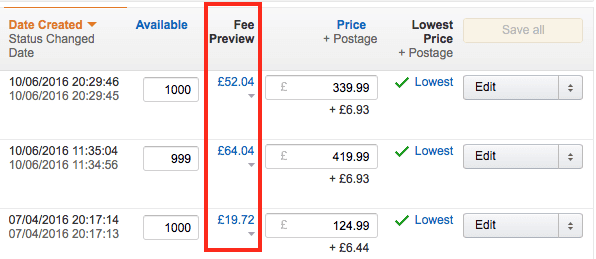
If you click on a blue figure it will show you a summary of the fees, as shown below.
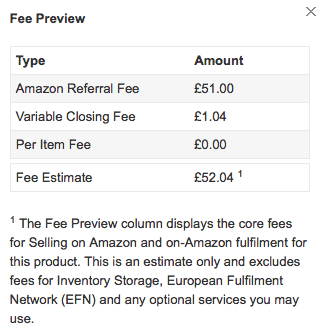
The referral fee is the real killer. You must find out the referral fee that applies to your product since it can potentially have a large impact on your product margin.
For example some product categories such as jewellery have a 25% fee! Then again product categories with typically low margins have fees as low as 7%. The referral fee structure is below.
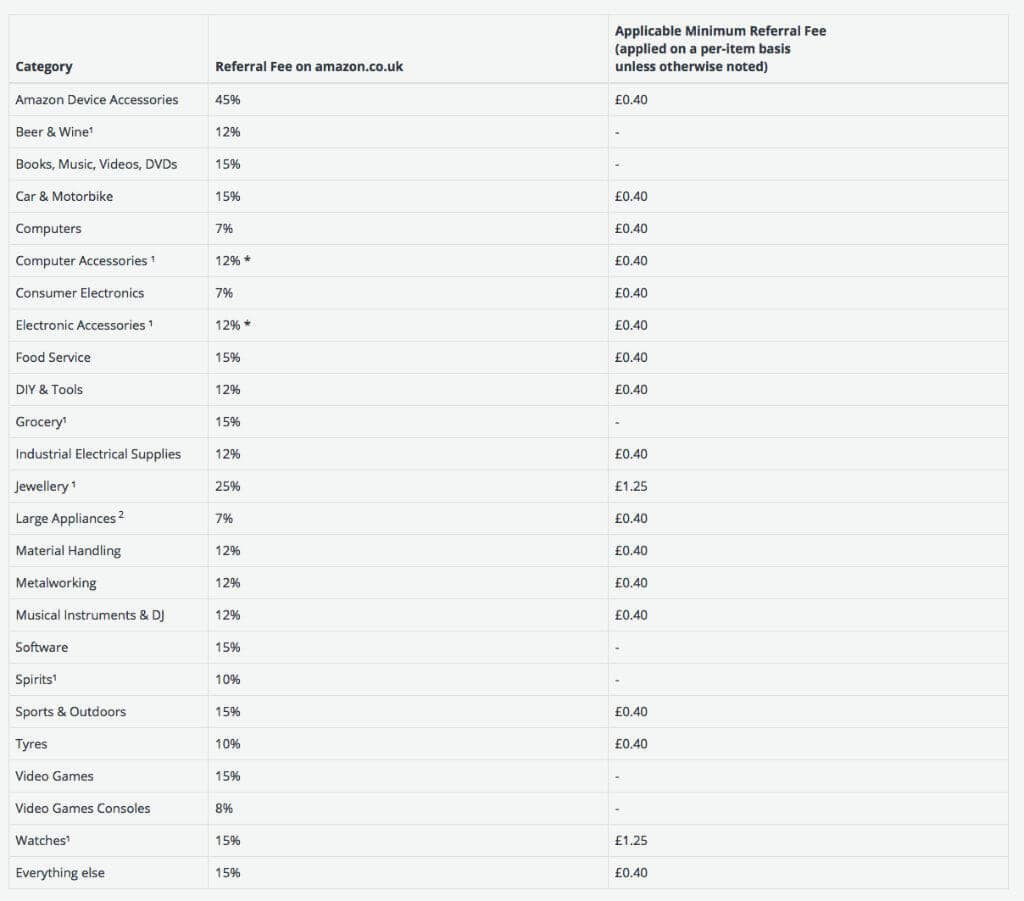
If you can absorb the fees and still make an acceptable profit, you’re ready to sell on Amazon. Fees may seem high, but remember Amazon can increase sales exponentially in comparison to your own standalone website.
Create an unbeatable product description
The description for your product is obviously important. The key on Amazon and in most copy writing is to fit as many selling points in the provided word count as possible.
There are 3 main fields that describe a product on Amazon:
- The title
- The bullet points (known as key product features)
- The product description
1. The Title
The title is shown at the top of the listing however more importantly, the title is the only piece of text shown in the search results for your item.
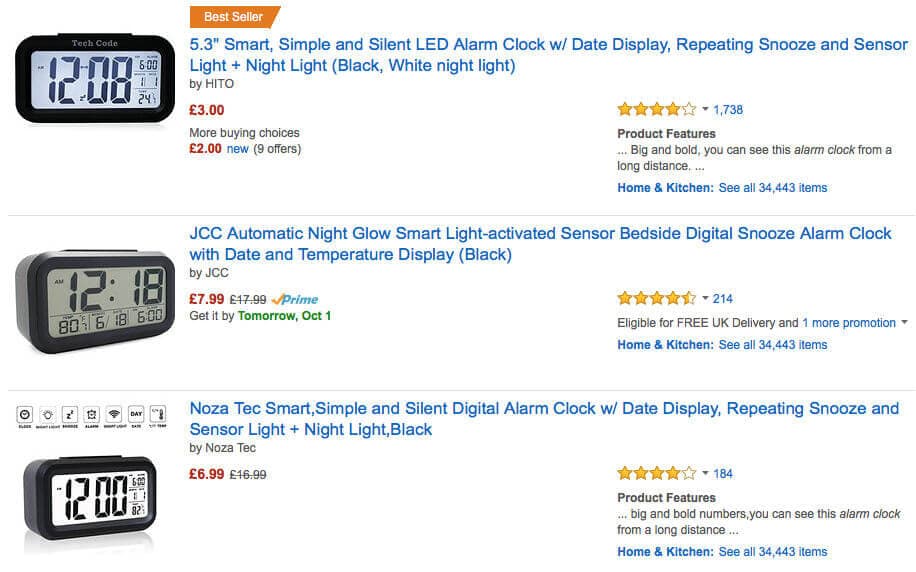
For this reason you need to grab the customers attention. A common mistake is to fill the title with keywords in the view that when these keywords are searched, your listing will appear. Although this may be true on eBay it is not an effective strategy on Amazon.
Keywords or ‘search terms’ as Amazon calls them, can be inputted in a separate field when you list a product. If a customer enters these search terms in any combination your item will appear somewhere in the results. The same applies to the keywords in the title. However,
“The title and search terms carry equal weight”
So there is no need to pack your title with unnecessary keywords, instead put it in the search terms. The title should be full of selling points to grab the customers attention.
An example of a good title with many selling points is:
The ZZap MS40i Money Counting Scale – Inbuilt printer, battery powered, counts a till in less than 2 minutes, checks coin bags and banknote bundles, save data to memory or PC and more!
An example of a poor title packed full of keywords is:
ZZap Money Cash Coins Banknotes Change Currency Count Electronic Scales Machine
2. Key product features
On every Amazon listing you will notice there are bullet points at the top of the page, as shown below in the red box. These are called the key product features.
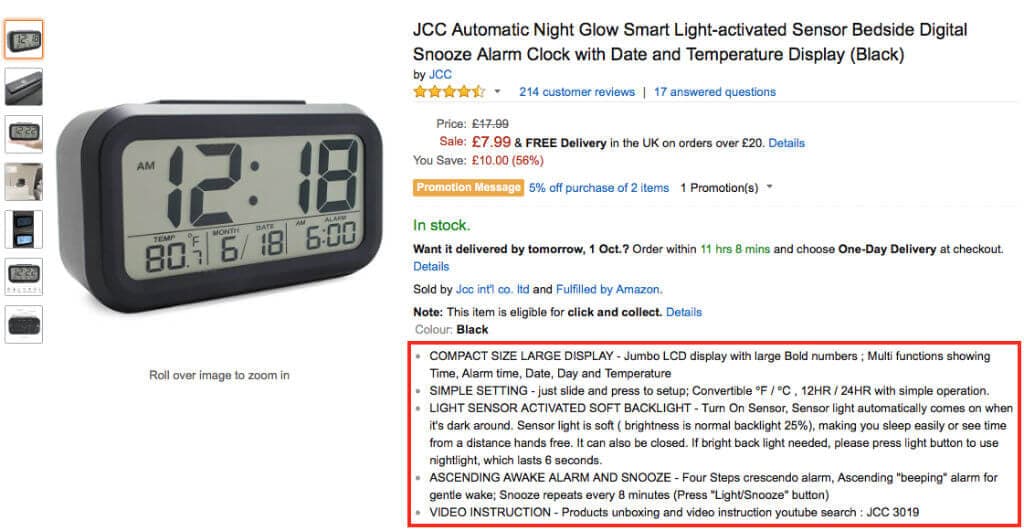
These bullet points are the bread and butter of your description. They are often the only copy text that is read properly (the product description is sometimes not even looked at).
Customers have a very short attention span so you have to prioritise the most important selling points in the top bullet point and so on.
There is a character limit for each bullet point. I find that writing short points rather than sentences uses up your limit more efficiently and gets across your point more effectively. I use forward slashes to separate points.
An example of a good bullet point is:
Counts 4 currencies: GBP, EUR, USD and CHF (other currencies on request) / Counts presorted banknotes & coins / Counts coin bags/rolls and banknote bundles / Save & view count reports in the memory / Calibrate your own cash drawer coin cups and other containers / Reference numbers & date-time stamps / Automatic or manual switch to next denomination / Automatic or manual add counting result to running total
This bullet point also fills up the character limit, so you’re giving the maximum number of reasons why a customer should buy your product.
Sometimes it may be worth doing less points for low value items since the customer will not be as interested to read all the information.
3. Product description
The product description is a great way to have an edge over the competition. It is often neglected since it is shown towards the bottom of the listing. However with the use of some simple HTML, you can pack in more information that you couldn’t explain in the bullet points.
HTML is a type of coding that makes your product description clearer and more appealing.
An example of a product description NOT using HTML:

An example of a product description using HTML:
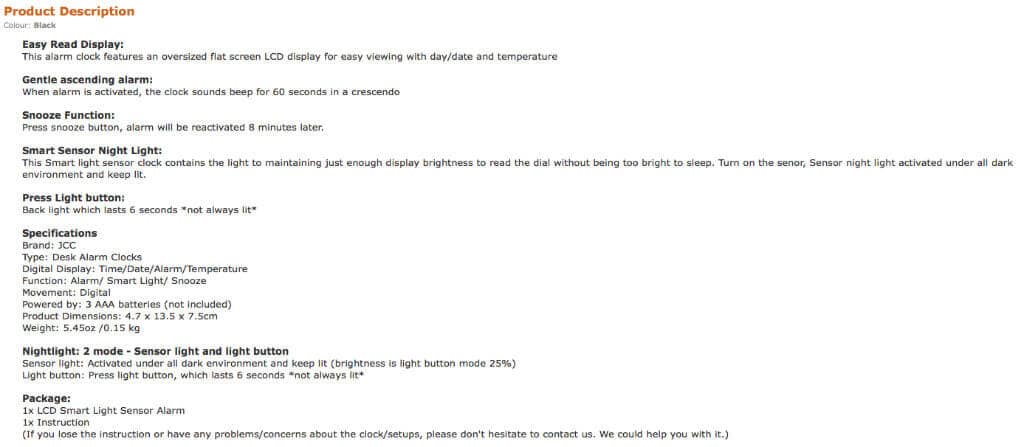
HTML is like a different language. It takes time to learn, however simple HTML like this can be learnt fairly easily using websites such as that below or using ready made templates.
https://understandinge.com/amazon-html-product-descriptions/
Again its important to use up your character limit. The more selling points and information the customer has, the more comfortable they will be purchasing your product. I find that an overview paragraph followed by bullet points provides the customer with everything they need to know.
Finally make sure you research all your competitors descriptions. If a competitor uses a selling point as simple as “compact & portable” and you don’t, this may be the difference between making and breaking a sale.
Ensure you include all the best points your competitors use, plus more, then you’ll be onto a winner.
Make your images stand out from the crowd
If you’re aiming to become the best seller you will need good quality images. Here are a few tips to make sure your images stand out from the crowd.
- Ensure you have very large, high resolution photos:
Although Amazon allows 500 x 500 pixel images, you should be aiming to have images with a minimum size of 2000 x 2000 pixels. This means when they are clicked on or zoomed in, they won’t lose their quality (see below) and most of all, the images will look professional.
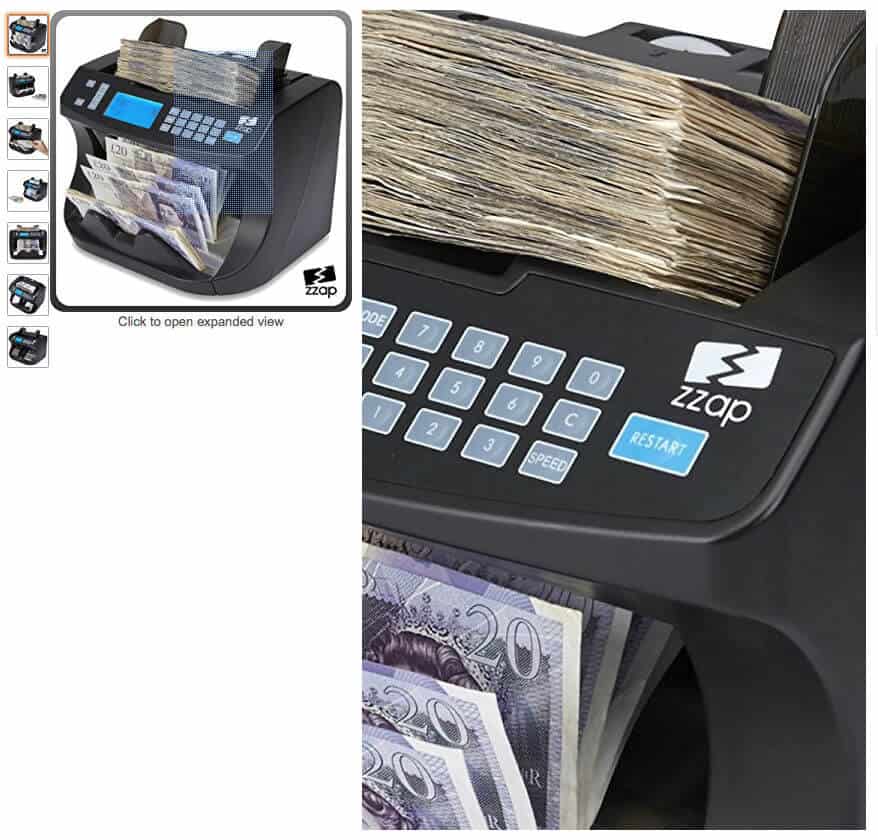
- Show the product in action:
As shown in the above image the product is being used i.e. banknotes are being counted. This creates a far better effect than if the product was shown on its own. It’s more eye catching and it doesn’t leave anything to imagination.
- Use a professional photographer:
When it comes to taking your product pictures, hiring a good photographer will avoid a lot of problems. For example good lighting vs bad lighting can transform the product and can have a real impact on sales.
- Make the background pure white:
Don’t create a sloppy off-white background. It’s not professional and it doesn’t enhance the product like a pure white background does.
- Use a photoshop specialist:
To create a white background the image will need to be ‘cut out’ of its original background. A specialist will make sure the images are cut out precisely and even layer on some shadows for effect. They can also touch up the image to remove marks and blemishes to make the product look perfect.
Set the perfect price
Of course, the price has to be set at a point where you’re making a profit. However depending on the competitive landscape, you may want to increase or decrease your profit margin in order to achieve the highest overall profit.
- Know the value of your product:
If your product is better than the competition, price it accordingly. Don’t be afraid of pricing it higher than your competitors. In fact, when you set a low price for what is perceived to be a high value product, customers sometimes think it’s too good to be true.
- Know the competitors prices:
If your product, description, images, etc, are very similar to the competition, price may be the only differentiator left. In that case setting a low price is necessary. It is wise to take a hit on your profit margin to gain sales.
- Keep your finger on the pulse:
Competitors often change prices, offer discounts for a period of time and sponsor products (pay amazon to appear higher in the search results). This means it’s important to monitor your competitors activity and act accordingly to maintain sales.
Get the best customer reviews
Customer reviews on eBay are important but on Amazon they really do make or break your sales.

Amazon has a 5 star rating system, which is very prominent. When a customer purchases a product they have the option to give that product a rating.
The rating system is directly under the title and its one of the first things a customer looks at. If your product is rated 3 star or below, you can say goodbye to the majority of your sales.
Generally the more ratings you have (the number shown by the side of the stars), the more you can get away with a lower rating. This because customers understand its harder to keep 1000 people happy than say 1 person.
Now, enough of the explanation. Lets talk about how you can achieve a 5 star rating.
- Dispatch items on the same day and use a fast delivery service:
This is one of the easiest and effective ways to get a good rating. If a customers product arrives late you’ll already be on the back foot and any other mishap will likely result in a bad rating.
Fast delivery services may be pricey but a poor review will cost you more. Quick delivery will also improve the customers experience and encourage repeat custom.
- Keep in regular communication with your customer:
If your customer is thinking of leaving a bad review, great communication may be the only saviour you have left.
Always make sure you keep on top of correspondence. Customers won’t hesitate to leave a bad review if you’re not even willing to rectify the problem.
- Don’t mislead customers:
If you lie in your listing, you’re asking for trouble. You may think you’re getting ahead of the competition but in the long run you will lose. There’s a reason the Amazon rating system is so prominent and effective.
- Quality check your products:
The last thing you or the customer wants is to have a faulty product on arrival. Always quality check products if there’s a chance they are defective.
This is particularly important if you’re sending the item abroad since delivery will be a lot more expensive if the customer decides to return the product.
References
http://www.forbes.com/powerful-brands/list/#tab:rank
https://sellerengine.com/top-5-things-you-need-to-know-about-amazon-sales-rank/
https://understandinge.com/amazon-html-product-descriptions/










